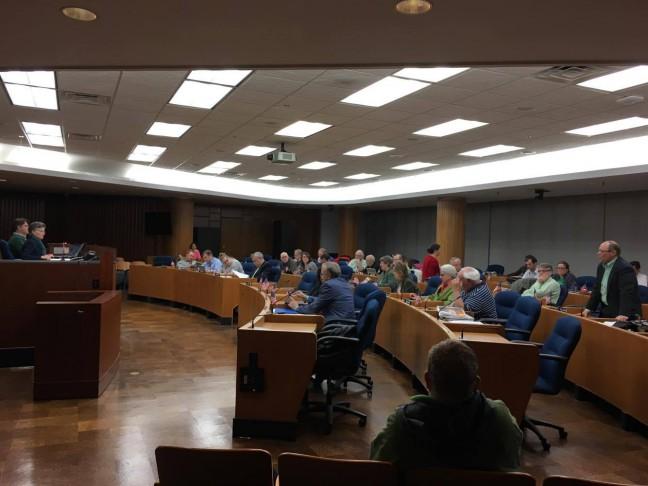Fred Prehn, a member of the Wisconsin Natural Resources Board, was supposed to step down in May 2021. He has refused to leave the position, and an open records lawsuit unveiled text messages from Prehn regarding his motivations behind the refusal.
The messages revealed that while he stepped down as chairman from the Board — as he had already exceeded that term limit of three years — his intent to stay on the Board as a general member was to retain conservative control.
Gov. Tony Evers and Attorney General Josh Kaul sued Prehn to remove him from the Board, but the Wisconsin Supreme Court supported Prehn, citing a 1964 decision that the governor could not remove a member of a Board without cause. The same decision cited that Prehn would not have to leave the Board until Ever’s appointee for that same position is approved by the Senate and the Assembly, both of which are Republican-controlled.
Many other Republican board members and appointees refused to leave their positions as a result of the Wisconsin Supreme Court decision and Prehn’s example. Amongst those are Becky Levzow and Mary Williams, whose terms expired on the Wisconsin Technical College System Board in May of 2021, but have sided with Prehn and refused to step down.
The partisan divide in Wisconsin is immense, and this is only a small piece of it. The GOP has control over most political bodies in Wisconsin, including the Senate, the Assembly, the Supreme Court and even regulatory agencies such as the DNR. The only area where the Republican party does not have control is the Governor’s Office, which is why the upcoming November election is so crucial for the state.
The partisan divide is nothing new for Wisconsin. In April 2022, the Wisconsin Supreme Court approved new district maps for the entire state. These maps were drawn by GOP lawmakers and give Republicans huge advantages in state elections. Additionally, the Senate has refused to appoint many of Ever’s appointees for government boards like the DNR Board, slowing many political processes.
The infiltration of strong partisanship in government bodies like the DNR Board is distracting from the very purposes of these agencies. The DNR Board is supposed to protect the natural beauty of Wisconsin and ensure that wildlife and natural resources are adequately protected. Bringing strong partisanship into government bodies that are not supposed to be politically motivated prevents those agencies from doing their jobs and duties to the state of Wisconsin.
Appointees like Prehn should absolutely not be allowed to remain on boards or other governmental positions beyond their term limits. One of the core foundations of democracy and the democratic system is term limits and leadership turnover. Remaining on a board for as long as one wants strays far from the notion of a strong democracy. No person — no matter their party or position — should be able to stay in a governmental seat of power beyond their term limit.
Additionally, the 1964 Wisconsin Supreme Court decision should not be nearly enough to allow Prehn to remain in his seat. Current conditions, particularly the political motive of the Wisconsin GOP and the Republican control of both the Assembly and Senate, should be taken into account. To refuse to have a hearing for Ever’s new appointees is against the idea of democracy, fairness and justice. These incidents destroy the democratic process.
A democratic system is meant to be the voice of the people, to organize a state or a nation and to govern in the best interests of the public. Partisan politics, however, completely disrupt this process by making government a battleground between Democrats and Republicans — an ongoing struggle to see who can have the most control.
Prehn bringing politics into the DNR Board completely distracts and disrupts the processes that the Board should be enacting. The DNR Board should be focused on the upcoming hunting season in Wisconsin, approaching winter and the threat of climate change — not the refusal of Prehn to leave the Board and the partisan battle associated with it.
Prehn refusing to leave the DNR Board is bringing partisan politics where they do not need to be and setting a precedent for other Republican appointees to follow. The removal of Prehn from his Board position is not only important to the future functioning of the DNR Board but also to the entire democratic system across the state of Wisconsin.
Emily Otten (elotten@wisc.edu) is a junior majoring in journalism.


